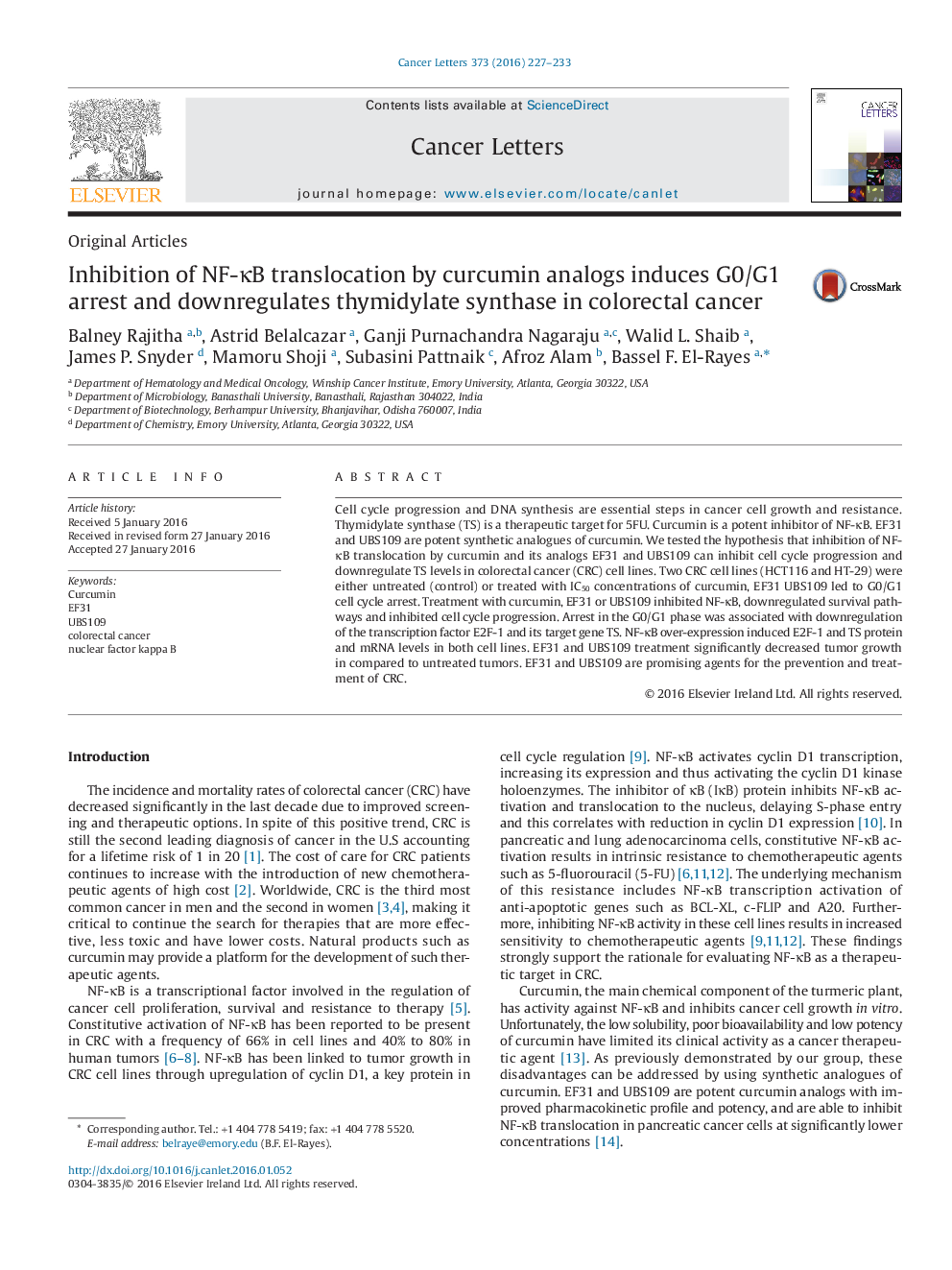| Article ID | Journal | Published Year | Pages | File Type |
|---|---|---|---|---|
| 2112336 | Cancer Letters | 2016 | 7 Pages |
•UBS109 and EF31 are more potent inhibitors of cell cycle progression than curcumin.•UBS109 and EF31 inhibit NF-κB and TS leading to decreased DNA synthesis.•UBS109 and EF31 and curcumin induce expression of silenced p16 and p21.•UBS109 and EF31 are promising analogues for future therapeutic development in CRC.
Cell cycle progression and DNA synthesis are essential steps in cancer cell growth and resistance. Thymidylate synthase (TS) is a therapeutic target for 5FU. Curcumin is a potent inhibitor of NF-κB. EF31 and UBS109 are potent synthetic analogues of curcumin. We tested the hypothesis that inhibition of NF-κB translocation by curcumin and its analogs EF31 and UBS109 can inhibit cell cycle progression and downregulate TS levels in colorectal cancer (CRC) cell lines. Two CRC cell lines (HCT116 and HT-29) were either untreated (control) or treated with IC50 concentrations of curcumin, EF31 UBS109 led to G0/G1 cell cycle arrest. Treatment with curcumin, EF31 or UBS109 inhibited NF-κB, downregulated survival pathways and inhibited cell cycle progression. Arrest in the G0/G1 phase was associated with downregulation of the transcription factor E2F-1 and its target gene TS. NF-κB over-expression induced E2F-1 and TS protein and mRNA levels in both cell lines. EF31 and UBS109 treatment significantly decreased tumor growth in compared to untreated tumors. EF31 and UBS109 are promising agents for the prevention and treatment of CRC.
